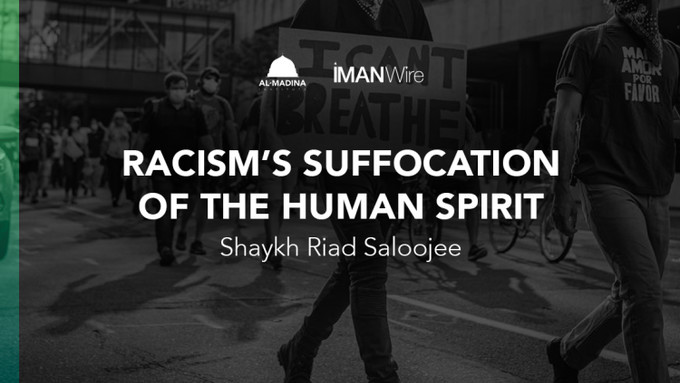The Challenge of Spirituality to Islamic Finance
I am often asked ‘What is Islamic finance? ‘Is it. . .Islamic?’. I nearly always hesitate. The answer isn’t simple or straightforward, at least not in my view, and that I find frustrating. I should be able to say that it is business and financing transactions performed in accordance with Islamic ethical principles. And I should be able to provide ample evidence of that. I should be able to tell you about its numerous positive features, which people regardless of faith would find compelling. For awhile, because of its complex reality, I used to answer that Islamic finance was defined by its (collective) aspiration.
These days I find myself talking about the theory of Islamic finance, its contemporary practice (which is not uniform), and have to define Islamic jurisprudential concepts and explain their interaction with prevailing laws and contextual factors to explain why and how Islamic finance reaches its seemingly ‘un-Islamic’ conclusions. Then, I am asked, ‘Do you think I should have an Islamic mortgage? Do you?’
Islam and its moral and spiritual teachings have so much to offer to consumption, production, business, and spending. Yet, we often find explanations of Islamic finance’s distinction limited to the prohibition of riba, a matter with which contemporary Islamic finance generally continues to struggle despite its claims of compliance to the contrary. That struggle is certainly superior to a station where one fails to exert any effort. And by no means do I belittle the prohibition of riba, for its wide implementation would indeed challenge the status quo. But why does contemporary Islamic finance often struggle so? Why does it seem not to, collectively or institutionally, answer its critics with thorough, nuanced, and patient explanations? Why does it risk losing audience?
I do not here try to address these questions; answers will probably depend on many interdependent moral, social, economic, legal, and political factors beyond our scope. Instead, I’ll offer you a thought that adds, hopefully, a perspective from which to consider these questions from my own humble, impoverished aspirations of spiritual purification.
After years of working in this industry of Islamic finance, I have come to hold ethics or spirituality to be the greatest, single challenge facing the contemporary Islamic finance market. Yes, there are other challenges, but they pale in comparison to this one. Improving the spiritual state of affairs, will, moreover, likely aid in overcoming these others.
We are often told that contemporary lending transactions involve riba and that, under Islamic law, an investor/ financier must bear an asset or market risk to be entitled to earn a profit. These are basic premises on which the contemporary Islamic finance market operates. So how do contemporary Islamic transactions function? Do they fulfill these principles? We would have to write a lengthy book in an effort to respond, delineating the risk-reward paradigm of various contemporary Islamic finance transaction structures. That is if confidentialities were breached/ disclosed as much of what matters is set forth in closely guarded written contracts and instruments. Of course, some of these instruments are public, and maybe some day soon the industry will provide a transparent mechanism to explain itself, its decisions, and to educate and engage, rather than dismiss, its buyers and critics. Until then, I’ll have to ask you to proceed taking my word. Please also accept my apology because try as I did I could not explain contemporary Islamic finance without complex financial structures entering the picture. Hopefully, though doing so will make it easier to explain how Islamic spiritual principles, such as tawakkul and muraqabah, are relevant to money. Let’s take a real world example1:
An Islamic investment bank decides to buy three large properties here in the U.S. It decides it does not want to spend so much of its (or its investors’) money in buying the properties or even one of them using cash entirely. So it decides to obtain financing.2 The downpayment it would pay would however certainly cover the cash purchase of any one of the three. This investment bank will seek financing to by which it will leverage and increase the internal rate of return3, which will keep its Muslim/ Islamic investors happy as they compare what return the conventional (“non-Islamic”) banks are promising them.4 After protracted discussions and assurances, a (conventional) American bank agrees to provide the sought after debt financing on Shari’a compliant terms. This conventional bank cannot do anything but lend at interest per law. So, the bank does indeed lend (at interest) to a strawman or single purpose entity borrower (organized at the behest of the Islamic investment bank) which, using the borrowed funds, acquires the properties in question and leases them to the business that will operate and manage the properties. That business makes payments and fulfills its obligations under a lease arrangement that is tied (in rather complex, opaque fashion) to the interest-bearing loan, enabling the strawman borrower to repay, and fulfill its other obligations to, the conventional lender.5
Why do all this? You might tell me regulations do not allow the conventional bank-lender to truly serve as owner-lessor, with the risks attendant to an owner. That’s true.6 Compromises are made, as hard as it is for contemporary Islamic finance to mention its dispensations. But regulation does not require the incurrence of debt. Was the potential income created by a single (multi million dollar valued) property not enough? Why demand such a high return that leverage becomes necessary? Why do we – the Muslim/ Islamic investor - seek (ribawi) debt? Why do we want profit without the attendant risk? Why do we seek the prohibited? And why, after seeking it, do we work (quite diligently, I might add) to engineer it into the form of equity?
Where was He, Al-Raqib, when not explicitly mentioning the loan in the lease documentation was sufficient to pass muster for Sharia compliance? Did we not consider His Presence when the object of financing differed from the purpose of the financing? Does God not know what we demand and hope for?
Not all contemporary Islamic transactions are done this way, so please don’t draw sweeping conclusions and condemn the industry and the effort. Some are better. Some we would widely recognize as permitted in fact. Why then am I not giving you these other examples? Because in my experience they are rare, and relatively speaking, their congruence with Islamic ethics can be more readily explained. Ironically – or it could be so to the uninitiated – I felt more concerned with the ethics of what I did as a lawyer when I drafted papers for Islamic transactions than when I did ‘conventional’ corporate work.
Yes, I have had an Islamic mortgage and most days I think people who ask me should too instead of borrowing conventionally. Why? To support the idea that there can be an Islamic finance, and to demand (with proper etiquette, of course) a better, more qualititatively Islamic instrument. I appreciate the impetus to own one’s residence – and to earn an education. There is merit, I usually add, to abstaining out of pious prudence if your heart (easily confused with other human constituents) says so, regardless of a third-party fatwa.
We don’t need debt to demonstrate Islam’s relevance to modern markets. We need to know that, when all is said and done, Allah will inquire as to how we earned, how we spent, how we consumed, how we invested, how we built, and how we treated our employees, counterparties, and partners. I could tell you that whole markets will open up to us if we rely on Him and lovingly adhere to His norms, but I am optimistic that it’s not the business case that we’ll find convincing.
1. The following has become a routine structure in larger scale investments, particularly by foreign Islamic investors, in the U.S. You might wonder why I chose this example. First, because it's easier to make my point with it because it explicitly involves an interest-bearing loan. Second, because it's used for investment purposes as opposed to basic consumptive purposes, such as education or home financing. Third, because certain other contexts, such as home financing, introduce other deeper questions of necessity/ need, social well-being, community wealth creation and potection, and the objectives of the Shari’ah.2. For simplicity sake, in conventional parlance it decides to borrow. But it can’t borrow (at interest).
3. Simply speaking, it can make more money for its investors this way.
4. We do have to consider that if the Islamic bank cannot keep its investors or depositors happy, then it may fail to be profitable, and may thus shut down and that has consequences. But at what cost must it keep these Muslim investors ‘happy’? On the other hand, can it operate in any other reality?
5. is tied (in rather complex, opaque fashion I might add) to a lease structure in which a strawman plays the role of the owner-lessor. For more details and some diagrams see my, Separating the Good from the Bad: Developments in American Islamic Acquisition Financing, available at http://papers.ssrn.com/sol3/papers.cfm?abstract_id=2495217.
6. How a U.S. bank may engage in Islamic lease financing without running afoul of its legal obligations is discussed by a regulatory authority in Office of the Comptroller of the Currency, Interpretive Letter #806 available at http://www.occ.gov/static/interpretations-and-precedents/dec97/int806.pdf.
Academic Related Articles

Shaykh Seraj Hendricks: Obituary
An internationally recognised Islamic scholar, who saw spirituality, justice, and knowledge as integral to an authentic religious existence. Shaykh Seraj Hendricks, who passed away on the 9th of July 2020 at the age of 64, was a scholar of international repute, able to communicate and engage on the level of state leaders, religious scholars and the broader public.

Racism’s Suffocation of the Human Spirit
I can’t breathe. George Floyd’s last words, conveying, verbatim, Eric Garner’s last words, with echoes through a long chain of souls – Breonna Taylor, Michael Brown, Walter Scott, Freddie Grey, Jamar Clark, Alton Sterling, Stephon Clark and Botham Jean – is a testamentary call that should pierce every Muslim’s mind and heart.

Between the Coronavirus & Ramadan: On Vigilance & Building a Better Now
I pray that, as we continue to lovingly welcome and vigilantly discover the blessings inherent in Ramadan upon us, we awaken to all the moments and especially the moment that Allah has chosen to place us. A quotation from Charles Dickens, the opening to one of his novels, is worth reflecting on: “It was the best of times, it was the worst of times.”